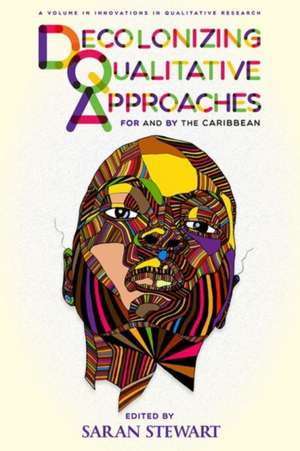Decolonizing Qualitative Approaches for and by the Caribbean (hc): Innovations in Qualitative Research
Editat de Saran Stewarten Limba Engleză Hardback – 25 iul 2019
Preț: 586.12 lei
Preț vechi: 689.56 lei
-15% Nou
Puncte Express: 879
Preț estimativ în valută:
112.17€ • 116.80$ • 94.80£
112.17€ • 116.80$ • 94.80£
Carte tipărită la comandă
Livrare economică 10-24 martie
Preluare comenzi: 021 569.72.76
Specificații
ISBN-13: 9781641137324
ISBN-10: 1641137320
Pagini: 244
Dimensiuni: 161 x 240 x 18 mm
Greutate: 0.52 kg
Editura: Information Age Publishing
Colecția Innovations in Qualitative Research
Seria Innovations in Qualitative Research
ISBN-10: 1641137320
Pagini: 244
Dimensiuni: 161 x 240 x 18 mm
Greutate: 0.52 kg
Editura: Information Age Publishing
Colecția Innovations in Qualitative Research
Seria Innovations in Qualitative Research
Descriere
Provides much needed knowledge and best practice strategies to the community of researchers engaged in decolonizing methodologies. Additionally, this volume will allow readers to think of new imaginings of research design that deconstruct power and privilege to benefit knowledge, communities and participants.





